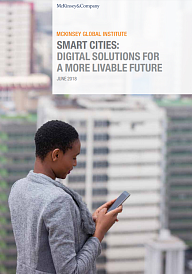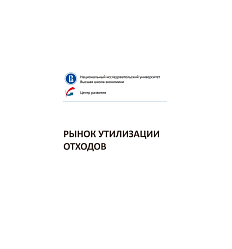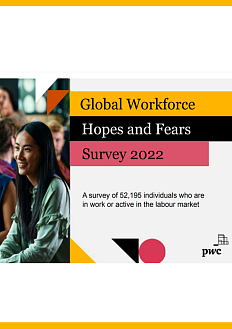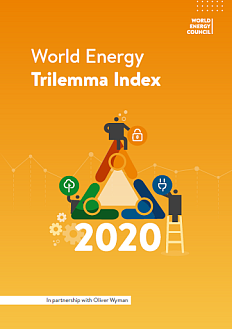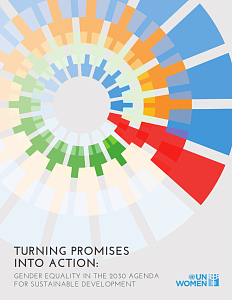What technology could eventually do in the urban environment
After a decade of experimentation, smart cities are entering a new phase. Although they are only one part of the full tool kit for making a city great, digital solutions are the most powerful and cost-effective additions to that tool kit in many years. This report analyzes dozens of current applications and finds that cities could use them to improve some quality-of-life indicators by 10–30 percent. It also finds that even the most cutting-edge smart cities on the planet are still at the beginning of their journey.
Smart cities add digital intelligence to existing urban systems, making it possible to do more with less. Connected applications put real-time, transparent information into the hands of users to help them make better choices. These tools can save time and lives, prevent crime, reduce the disease burden, reduce waste, and even help boost social connectedness.
Smart-city technologies have substantial unrealized potential to improve the urban quality of life
McKinsey assessed how dozens of current smart city applications could perform in three sample cities with varying legacy infrastructure systems and baseline starting points. The authors of the report found that these tools could reduce fatalities by 8–10 percent, accelerate emergency response times by 20–35 percent, shave the average commute by 15–20 percent, lower the disease burden by 8–15 percent, and cut greenhouse gas emissions by 10–15 percent, among other positive outcomes.
In addition to that, the technologies analyzed in the report can help cities make moderate or significant progress toward 70 percent of the Sustainable Development Goals. Yet becoming a smart city is less effective as an economic development strategy for job creation.
A look at current deployment in 50 cities around the world shows that even the most advanced still have a long way to go
Authors’ snapshot of deployment in 50 cities around the world shows that wealthier urban areas are generally transforming faster, although many have low public awareness and usage of the applications they have implemented. Asian megacities, with their young populations of digital natives and big urban problems to solve, are achieving exceptionally high adoption. Measured against what is possible today, even the global leaders have more work to do in building out the technology base, rolling out the full range of possible applications, and boosting adoption and user satisfaction. Many cities have not yet implemented some of the applications that could have the biggest potential impact. Since technology never stands still, the bar will only get higher.
Smart cities create room for private-sector participation and shift value across the landscape of cities and throughout value chains
The public sector would be the natural owner of 70 percent of the applications McKinsey examined. But 60 percent of the initial investment required to implement the full range of applications could come from private actors. Furthermore, more than half of the initial investment made by the public sector could generate a positive return, whether in direct savings or opportunities to produce revenue.
Smart cities may disrupt some industries even as they present substantial market opportunities. Customer needs will force a reevaluation of current products and services to meet higher expectations of quality, cost, and efficiency in everything from mobility to healthcare. Smart city solutions will shift value across the landscape of cities and throughout value chains. Companies looking to enter smart city markets will need different skill sets, creative financing models, and a sharper focus on civic engagement.
This publication has been posted in the Roscongress Information and Analytical System on the recommendation of the Roscongress Foundation expert community.


